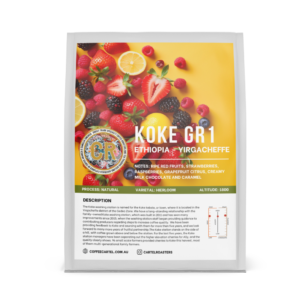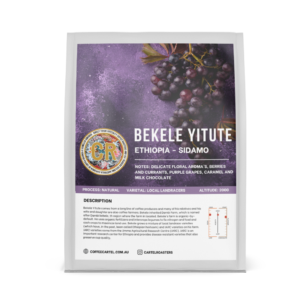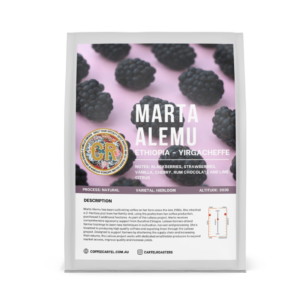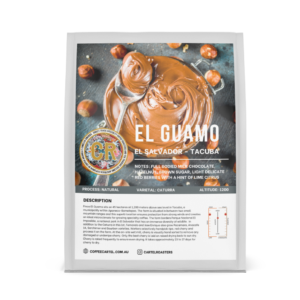About this coffee
- Altitude: 1900MASL
- Farmer: VARIOUS SMALL HOLDERS
- COUNTRY: ETHIOPIA - YIRGACHEFFE
NOTES: POWERFUL FRUIT AND FLORAL NOTES, SWEET RICH CHERRIES, BEAUTIFUL RICH BERRIES AND A SWEET FINISH.
Purchased on June this small sun-dried Natural processed grade 1 coffee comes from Yirgacheffe. We have previously purchased and visited this small farm holder and are proud to represent this famous region and learn a little about the coffees home.The Hafursa Cooperative was established in 1975 and joined the Yirgacheffe Coffee Farmers Cooperative Union (YCFCU) in 2002, an umbrella organization established to support a sustainable coffee supply from co-ops in the Gedeo ethnic region of Ethiopia. Hafursa currently has 893 members located in the Yirgacheffe District The majority of Hafursa coffee is produced on family owned plots of 0.25 to 1.5 hectares that are shaded, and inter-planted with banana and other nitrogen-fixing crops. Enjoy brew with care.
Coffee all started in Ethiopia in the 9th Century when the goat-herder Kaldi, noticed his goats acting more spritely after consuming cherries from a certain plant. Kaldi tried the cherries and noticed some of the familiar effects that we all feel when we enjoy some of the good drink in the morning. While this is a popular account of the ‘Discovery’ of coffee, there are other accounts of traders chewing cherries on trade routes from Ethiopia in order to increase energy. Ethiopia’s history is full of dramatic changes. Over the last four decades, the Ethiopian people have lived under three different forms of government, which include a semi-feudal imperial, a military rule with Marxist ideological orientation from 1974-1991, and a federal governance system from 1991 until the present. All of these periods have been accompanied by dissatisfaction, armed resistance and rebellions. Ethiopia has also confronted economic, social and environmental problems including a war with Eritrea from 1998-2000. This recent dispute with Eritrea as well other historical conflicts has provoked many damages, including lost lives, limited access to the land, emotional trauma, and extreme hunger.
Coffee still grows wild in Ethiopia’s mountain forests. Ethiopian farmers cultivate coffee in four different systems, which include forest coffee, semi-forest coffee, garden coffee and plantation coffee. About 98% of the coffee in Ethiopia is produced by peasants on small farms and it is the country’s most important export. Ethiopia is Africa’s third largest coffee producer. There are about 700,000 coffee smallholders in Ethiopia, of which 54 percent are in semi forest areas. Coffee has been part of their indigenous cultural traditions for more than 10 generations.





